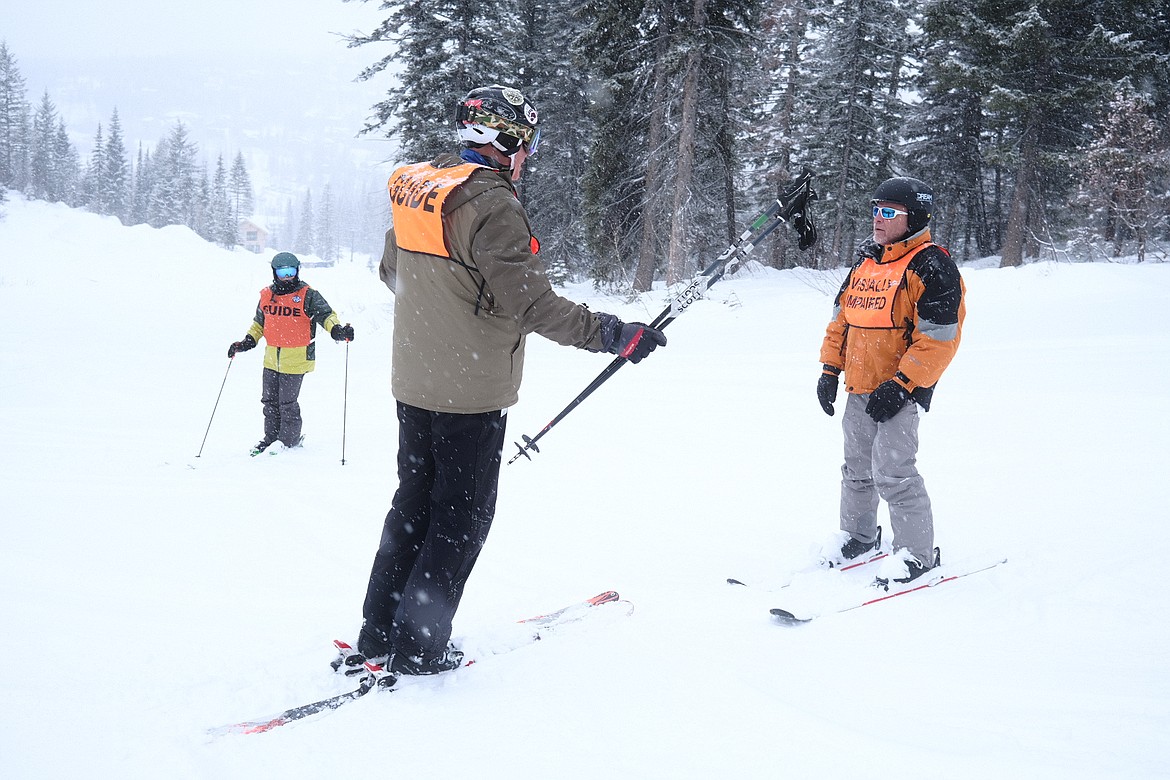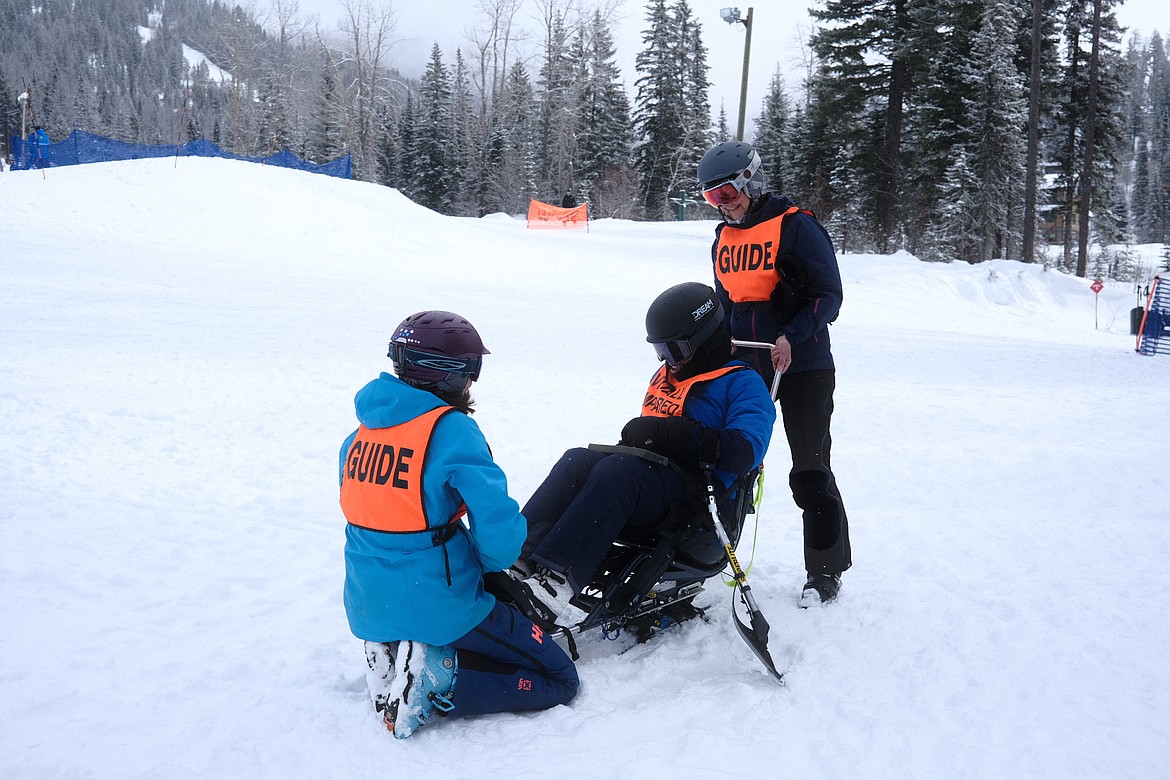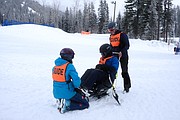Organizations partner to assist blind veterans in pushing to new limits on ski slope
It had been a year or more since Danny Wallace had gone skiing, but he was making turns and zipping under Whitefish Mountain Resort’s Chair 9 on his first lap.
His technique is solid for someone who hasn’t skied in a while, and only picked the sport up in his 50s.
It’s more impressive when you consider that Wallace is blind.
Wallace is a retired first sergeant out of the 101st Airborne Division, who lost his vision when a suicide bomber detonated in his company’s compound in northern Iraq in 2003, injuring over 60 soldiers.
Although his skiing ability is remarkable, Wallace does have some assistance, in the form of a convoy of volunteers escorting him down the slopes.
He has someone skiing ahead of him, providing a shape to follow, and someone close behind, giving him verbal directions to help him navigate the mountainous terrain. Wallace has limited vision in one eye, in which he has only limited recognition of shapes and colors.
The volunteers are all clad in orange vests, reading “Guide.” Wallace’s in a similar outfit, with his labeled “Visually Impaired.”
The helpers are instructors with DREAM adaptive and the Whitefish Veterans Support Team, which partnered for the first time this winter to bring adaptive ski lessons and access to a group of six veterans, who are blind and members of the Blinded Veterans Association.
DREAM was founded in 1985 with the mission of making Montana’s beautiful outdoor spaces accessible to people with physical or developmental disabilities, and the nonprofit created an adaptive skiing program not long after.
DREAM volunteers and participants can often be seen on the Big Mountain slopes, helping people with disabilities get out and enjoy the snow. The organization serves more than 300 clients in all seasons, and also offers cycling, kayaking, paddle boarding, and more.
They have a good working relationship with Whitefish Mountain Resort, with the ski area providing lift tickets for participants, season passes for dedicated volunteers, and reserving rooms in the lodge for event staging, said Julie Tickle, DREAM’s executive director.
The resort is also donating a half acre near the Easy Rider chairlift, on which DREAM plans to build a new home base for administration and programming.
Whitefish Veterans Support Team secretary Mark Panicek was part of Wallace’s team of volunteers. Panicek served in the Coast Guard for 25 years and counts himself lucky to have retired without major injuries or disabilities.
He was thrilled to see the group of veterans ski and snowboard and hopes to expand the partnership with DREAM in the coming years. Through fundraising, Panicek’s group feels they can serve more veterans, but these events also require a large number of volunteers, with each veteran having two or three people dedicated to helping them ski safely.
“The Blinded Veterans Association has approximately 6,000 members, so there is enough interest to keep us supplied with as many participants as we can handle,” said Panicek. “The primary limiting factor is the number of our volunteers; we are always looking for additional folks that are willing to help out.”
ALSO GETTING on the slopes on a recent day was Yoneka Trent.
From North Carolina, Trent served as military police for eight years on bases in the United States and Germany.
Trent deals with a host of diagnoses, including PTSD, depression, visual conditions such as macular degeneration, Fuchs dystrophy, and myopia. Surgeries on her flat feet have left limited mobility in her ankles.
Trent still remembers the day in 2018 when she woke up blind. She started skiing only a few years ago, and never before she lost her vision.
She recalls getting a phone call from Lonnie Bedwell, a blind veteran who has turned his taste for adventure into a career as a motivational speaker and author. Bedwell is best known for the first blind kayak descent of the Colorado River and summiting Mount Kilimanjaro in Kenya. He is currently planning the first ascent of Mount Everest by a blind person.
“I was literally in the house, in the corner, in the dark by myself. Doing nothing, you know? Feeling miserable,” Yoneka recalls. “[Lonnie] called me up and asked ‘Do you want to go skiing?’ He talked me into it.”
For Wallace and Trent, the skiing itself is fun, but the sense of accomplishment that comes with pushing their limits and inspiring others is what these excursions are all about.
Trent is becoming an ambassador for the Blinded Veterans Association, a role in which she wants to become a go-between for the veterans and programs that serve them, and call other veterans to motivate them and cheer them up.
“If I can drag them out to one event, I don’t care if it’s cycling or skiing or whatever, they’re hooked,” she said. “I want to learn all that I can, so I can say [to other blind veterans] ‘I tried this, you should try it.’ The more experiences I pick up the more I can motivate others.”




